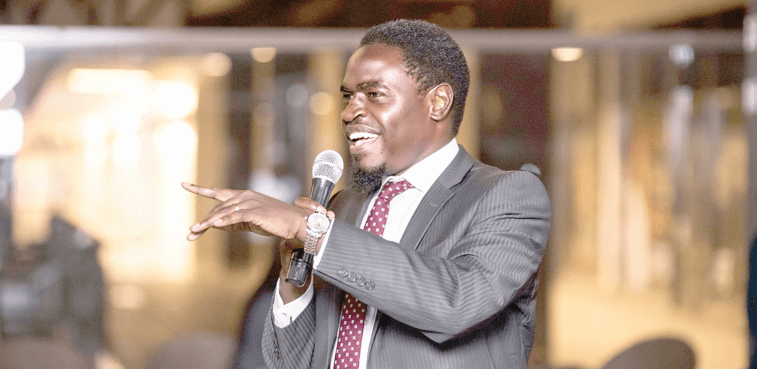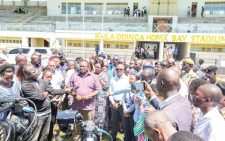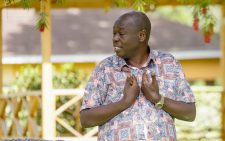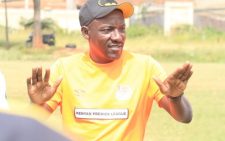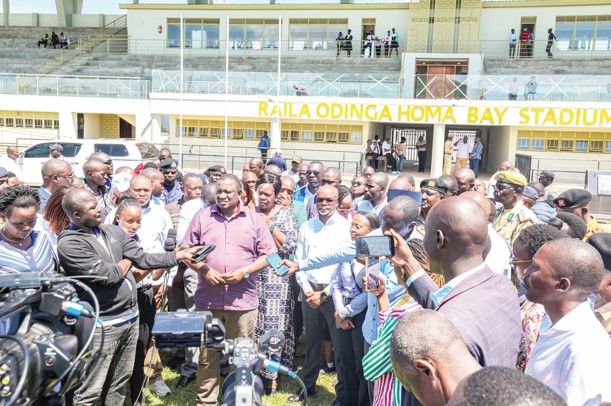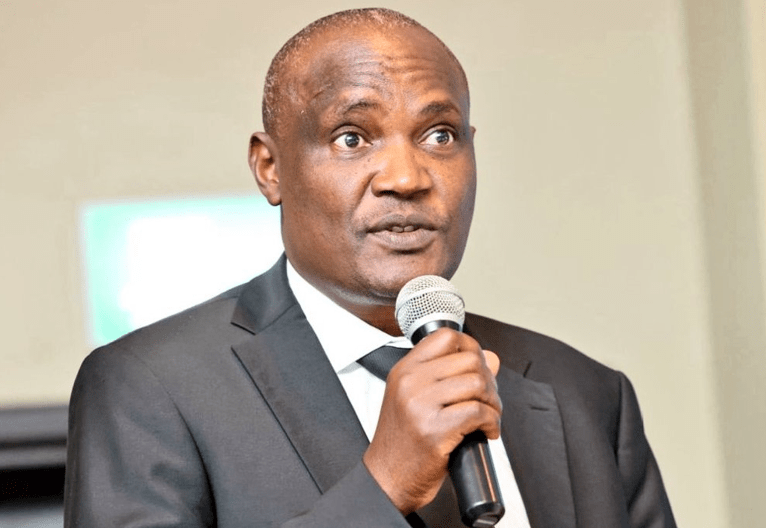LSK presidential candidates vow to restore order
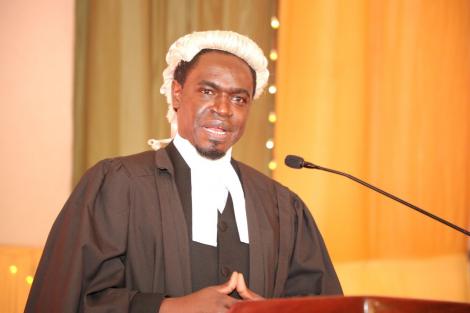
Lawyers seeking to succeed outgoing Law Society of Kenya (LSK) President Nelson Havi have intensified their campaigns ahead of the March 10 elections.
Advocates of the High Court of Kenya will vote to elect 12 council members – including the President, Vice-President as well as two disciplinary committee members.
The election will be presided over by the Independent Electoral and Boundaries Commission (IEBC).
Having been dogged by wrangles that led to the premature ouster of Havi, the candidates will have to work hard to win the trust of their colleagues.
Havi has declared interest in the Westlands parliamentary seat.
Five lawyers have satisfied the requirements to run for position of president.
“Having received and scrutinised the nomination papers submitted by members seeking the various positions, we are satisfied that they meet the requirements and the elections board has approved their applications to contest,” the LSK elections board Secretary Mwangangi Kitheka said.
A person seeking the presidency must be a member or former member of LSK Council or a lawyer who is qualified to be appointed as a Supreme Court judge with at least 15 years of experience in legal practice.
Candidates running for the presidency include Havi’s deputy Carolyne Kamende, Matthew Nyabena, Omwanza Ombati, Eric Theuri and Kipkoech Ng’etich.
Those seeking the position of vice president include Ajwang’ Debora Anditi, Akusala Boniface Apamo, Mongeri David Nyamweya and Odhiambo Faith Aoko.
Ombati, Kamende and Theuri are all based in Nairobi, Nyabena practises in Mombasa while Ng’etich is Nakuru.
The five candidates have been traversing the country since last week when the LSK Election Board cleared them.
While traditionally the focus will be on the LSK presidency and the governing council, the woman representative post at the Judicial Service Commission (JSC) has also attracted stiff competition.
The contest is particularly important because of the role the commission plays in the appointment of the Supreme Court, the ultimate determinant of a presidential election dispute.
Those seeking to fill the woman rep post at JSC are Julie Soweto, Ingutiah Jacqueline Osiako, Kipsang Christine Mwikali, Konuche Anna Cherono, Njagi Jane Nyaboke, and Otieno Mercy Aoko.
Kamende says she is the best candidate to succeed Havi as she has institutional memory.
Rule of law
Besides, the outgoing vice president has promised to continue Havi’s legacy by holding the government and its agencies to account while protecting the independence of the legal profession, the Judiciary and defending the Constitution.
In an interview with People Daily, she described herself as a safe pair of hands who will ensure there is a conducive environment for the practice of law.
“I undertake to serve equally our members, our profession and the public by defending the rule of law as the national representative of the legal profession,” she said.
Kamende has also promised to increase public understanding of and respect for the rule of law and the role of the legal profession.
In her election campaign, she wants to ride on her successes as vice-president where she established the sexual harassment and anti-bullying policy, set up a toll-free line for lawyers to report incidents and file human-interest cases.
Theuri, the outgoing Nairobi LSK branch chair, has anchored his campaign on three pillars including protecting and expanding the legal practice environment, championing the rule of law and focused leadership.
“There is an urgent need to protect traditional areas of practice for advocates that have recently come under threat of encroachment through legislation, adoption of new technology and quacks,” he said.
He also promises to create opportunities for young lawyers.
According to him, young lawyers feel that the legal practice environment has more obstacles than opportunities and pupillage has failed as a mentorship programme to help them build careers.
“The senior bar must initiate and mentor future practitioners and leaders of the third arm of Government- the Judiciary because good Judges and magistrates can only come from a pool of well-bred lawyers,” Theuri said.
Nyabena, who chair’s the society’s Coast branch, has anchored his campaign on a seven-point manifesto, which, he says, seeks to return the LSK to members’ hands.
“Let us vote change, sobriety and turn the page for the better. Unity must win,” he told People Daily.
Nyabena has vowed to prioritise the resolution of numerous cases filed touching on conflicts between members and the Society.
“There are many qualified members within our ranks full of integrity who can internally hear our disputes and render decisions,” said Nyabena.
He added: “We can have an initial and appellate committee for this. We are all judges in private practice,” he added.
“I propose to initiate a change of the Law to enable all disputes to be heard internally with clear timelines,” Nyabena stated.
Ombati promised to undertake the restoration of confidence in the profession.
“We shall keep the army well trained and ready for quick deployment whenever there is a need to safeguard our gains or protect the rule of law,” he said.
Young lawyers
“I undertake to be a President for all lawyers and to be an excellent and objective voice for your issues and in the public interest.”
To address the discrepancies between senior and junior lawyers, Ombati promised to involve young lawyers in the mainstream as people who make decisions that affect them.
If elected President, he has promised to represent and support the young bar at the start of their careers, helping them develop and progress in the profession.
Ng’etich, who is the outgoing upcountry representative Rift Valley region, has promised to push for a shorter turnaround time for cases in courts, review of Ardhi Sasa and expansion of practice areas. He also promises a secure and effective lands registries, tribunals and registrar of companies.
Ng’etich also promises to negotiate friendly and holistic medical cover and sustainable mentorships while revamping and motivating the LSK secretariat and aligning it to respond to members interests. “There is a need for meaningful access to justice through enough specialised courts in the region and review of LSK Act,” he said.


